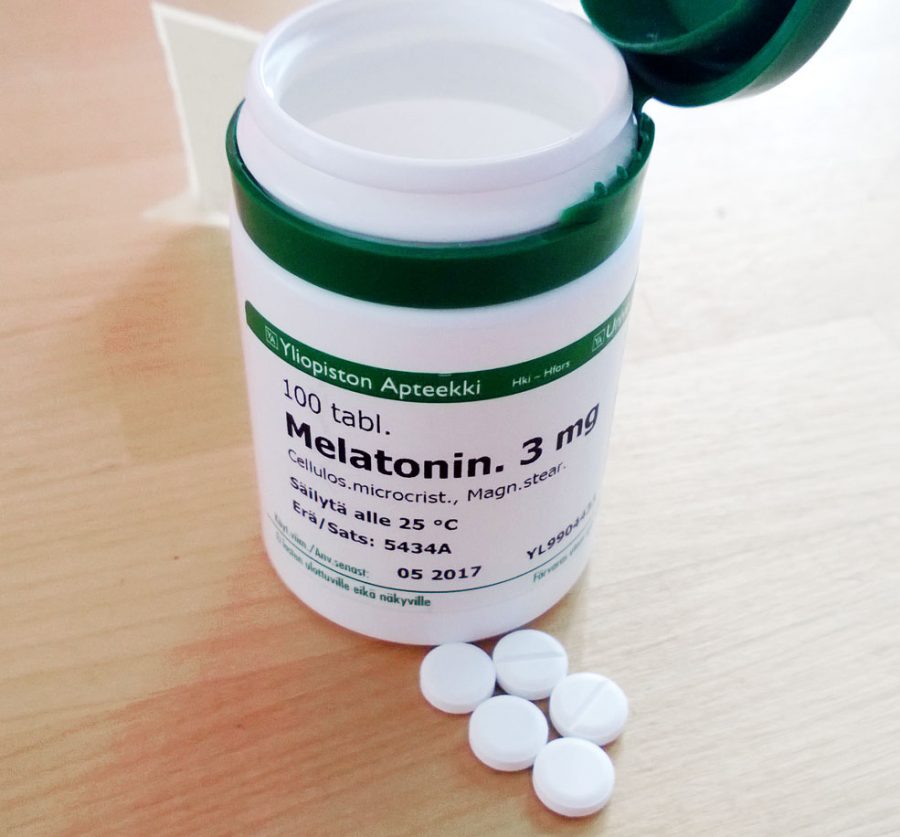Research needed before taking melatonin, caffeine
March 7, 2019
The struggle of going to bed at night and waking up in the morning is a problem for everyone. Many students use melatonin, a hormone that regulates sleep-wake cycle, at night believed to stimulate the brain and aid sleep. Students are also drinking coffee or an energy drinks in the morning to help the brain wake up. Both of these substances have many effects on human bodies.
Before anybody decides to take melatonin, or anything to stimulate the “sleep” hormone in their body, adequate research should be done. One should be well-educated on what melatonin is. Melatonin is a hormone produced in the pineal glands. So, whenever melatonin supplements are taken over and over again, the body becomes dependent on what is consumed instead of what is produced in the brain. This is similar to if someone does not use a body part, the body will eventually entirely forget how to use that part. Therefore, taking melatonin supplements can have a very detrimental effect on the production of natural melatonin and cause sleep patterns to be very bad. It can cause insomnia or oversleeping.
There is also a very big difference between melatonin in pill form and when it’s naturally produced. Taking supplements makes the hormone come in bursts and go away quickly, whereas whenever it is produced naturally, it slowly fades in as you get tired, and back out as you naturally wake up.
On the contrary, melatonin supplements absolutely help people fall asleep. According to healthline.com, the supplement can also help contribute to eye health and raise growth hormone levels in men. Poor sleep can have very bad consequences, and taking melatonin can help fight a struggling sleep schedule.
Caffeine is a natural stimulant of the nervous system. It blocks Adenosine, a neurotransmitter, or chemical messenger, that makes the brain tired and relaxes it, from entering the brain. That’s why caffeine wakes people up and keeps them up.
Of course, caffeine makes people more alert, in better moods, and much more awake. On hopkinsmedicine.org, plenty of reasons are given as to why caffeine could be good for humans. Studies have shown that consuming more caffeine can help people live longer. It can reduce the risk of dying from coronary heart disease, stroke, diabetes, and kidney disease. Caffeine can also make your DNA stronger and your body could process glucose better.
According to ncbi.nlm.nih.gov, caffeine; however, can have many effects on the body. It can trigger anxiety attacks, as consuming it has similar effects to a frightening event. Long-term consumption can also cause muscle tremors.
Taking any supplement should not be done lightly. Consult experts and do the research to be sure it is the right choice.









![The release of Lisa Frankenstein on February 9, 2024, has made it the best movie of the year so far. [Made with Canva]](https://aahsmountainecho.com/wp-content/uploads/2024/04/LisaFrankenstein-cover-1-450x600.jpg)
![Rivals. Spotify and Apple Music are the most even on the streaming-service playing field. Spotify was officially launched in 2008, and Apple Music in 2015. [Made with Canva]](https://aahsmountainecho.com/wp-content/uploads/2024/04/Spotify-vs-Apple-music-600x600.png)
![Lets go Bucs! The Pirates 2024 season started on March 28 with a game against the Marlins. [Made with Canva]](https://aahsmountainecho.com/wp-content/uploads/2024/04/Pirates-season-underway-600x600.jpg)




